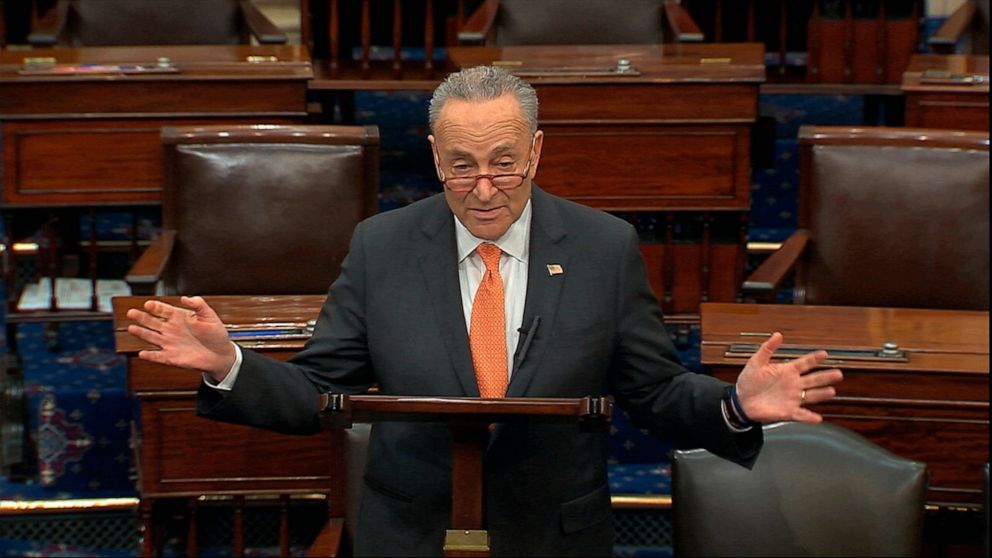As the 2025 U.S. federal government shutdown stretches beyond a month, one of its most immediate and tangible impacts is the looming suspension of SNAP (Supplemental Nutrition Assistance Program) benefits. Senate Minority Leader Chuck Schumer has framed the suspension as a serious threat to millions of Americans who depend on this essential food assistance, warning of a potential “hunger crisis” if funding is not restored promptly. While some of Schumer’s statements are politically charged, the core facts behind the crisis are real, and the human consequences may be severe.
Background of the Shutdown
On October 1, 2025, federal funding lapsed after Congress failed to pass a new appropriations bill, triggering the shutdown. Lawmakers remain deadlocked over healthcare subsidies, foreign aid allocations, and overall spending levels. Thousands of federal employees have been furloughed, others are working without pay, and nonessential government services have been paused.
The potential disruption of SNAP benefits is among the most urgent issues for millions of Americans who rely on the program for daily nutrition.
The SNAP Program and Its Importance
SNAP benefits are a cornerstone of the U.S. social safety net. They allow low-income families to afford nutritious food and reduce food insecurity nationwide. In 2025, recipients receive an average benefit of approximately $187 per month. Many households rely on this funding as their primary source of nutrition, making the potential lapse during the shutdown particularly alarming.
[Embed Schumer’s Senate speech video here]
If the government remains closed through November, new SNAP benefits will not be issued for that month. While some households may have unused balances on their EBT cards, these funds are limited and cannot cover all recipients. State agencies have warned that many Americans could face weeks without access to food assistance if the shutdown continues.
Contingency Fund Debate
A central dispute involves the USDA’s contingency fund, which holds roughly $5 billion for emergencies and disasters. Democrats, including Schumer, argue that these funds could be used to continue SNAP payments during the shutdown. The Trump administration contends that the funds are legally restricted and cannot be applied to routine program payments without violating federal law.
Schumer has repeatedly called the suspension of SNAP benefits a deliberate political maneuver, accusing the administration of creating a “manufactured hunger crisis.” While this language is rhetorical, it highlights the urgency of the situation and the moral stakes involved in budget negotiations.
Political Context and Accusations
Schumer has strongly criticized the Trump administration for what he describes as an unprecedented action to cut off SNAP benefits during a government shutdown. He has asserted that no president in history has paused these benefits in such circumstances, framing the issue as both a moral and political crisis.
The broader political debate centers on whether Democrats or Republicans bear primary responsibility for the shutdown. Democrats have opposed “clean” continuing resolutions that would reopen the government without addressing healthcare subsidies. Republicans have insisted that the government reopen first, with spending negotiations conducted separately. Both sides are using the shutdown as leverage to advance their legislative priorities.
Economic and Social Impact
The suspension of SNAP benefits would exacerbate hardship for millions of families. Food banks and charitable organizations are already preparing for increased demand, while state and local governments are exploring emergency measures to support affected residents.
Beyond immediate food insecurity, the shutdown has broader economic consequences. Analysts estimate that prolonged federal closures could reduce GDP growth, disrupt markets, and weaken public confidence in government institutions. Families reliant on federal paychecks or social programs face both immediate and long-term financial pressures.
What to Watch
Several developments could influence how the SNAP situation unfolds:
-
State lawsuits: Many states are suing to compel the federal government to continue SNAP payments, potentially forcing action through the courts.
-
Congressional negotiations: New proposals may emerge to extend funding or provide temporary relief for SNAP recipients.
-
Public opinion and media pressure: As food insecurity becomes more visible, public sentiment may push lawmakers toward resolution.
-
Retroactive payments: If benefits resume after the shutdown, back pay could help mitigate the impact, though it may not reach all affected households immediately.
The outcome of this crisis may set a precedent for how future government shutdowns handle social safety net programs.
Conclusion
The looming suspension of SNAP benefits underscores the human cost of political deadlock. Schumer’s warnings may carry partisan overtones, but the underlying facts are undeniable: millions of Americans face the prospect of going without food assistance if Congress and the administration fail to reach an agreement. The coming days will be critical in determining whether the federal government can prevent a crisis that touches some of the nation’s most vulnerable families.

Emily Johnson is a critically acclaimed essayist and novelist known for her thought-provoking works centered on feminism, women’s rights, and modern relationships. Born and raised in Portland, Oregon, Emily grew up with a deep love of books, often spending her afternoons at her local library. She went on to study literature and gender studies at UCLA, where she became deeply involved in activism and began publishing essays in campus journals. Her debut essay collection, Voices Unbound, struck a chord with readers nationwide for its fearless exploration of gender dynamics, identity, and the challenges faced by women in contemporary society. Emily later transitioned into fiction, writing novels that balance compelling storytelling with social commentary. Her protagonists are often strong, multidimensional women navigating love, ambition, and the struggles of everyday life, making her a favorite among readers who crave authentic, relatable narratives. Critics praise her ability to merge personal intimacy with universal themes. Off the page, Emily is an advocate for women in publishing, leading workshops that encourage young female writers to embrace their voices. She lives in Seattle with her partner and two rescue cats, where she continues to write, teach, and inspire a new generation of storytellers.









